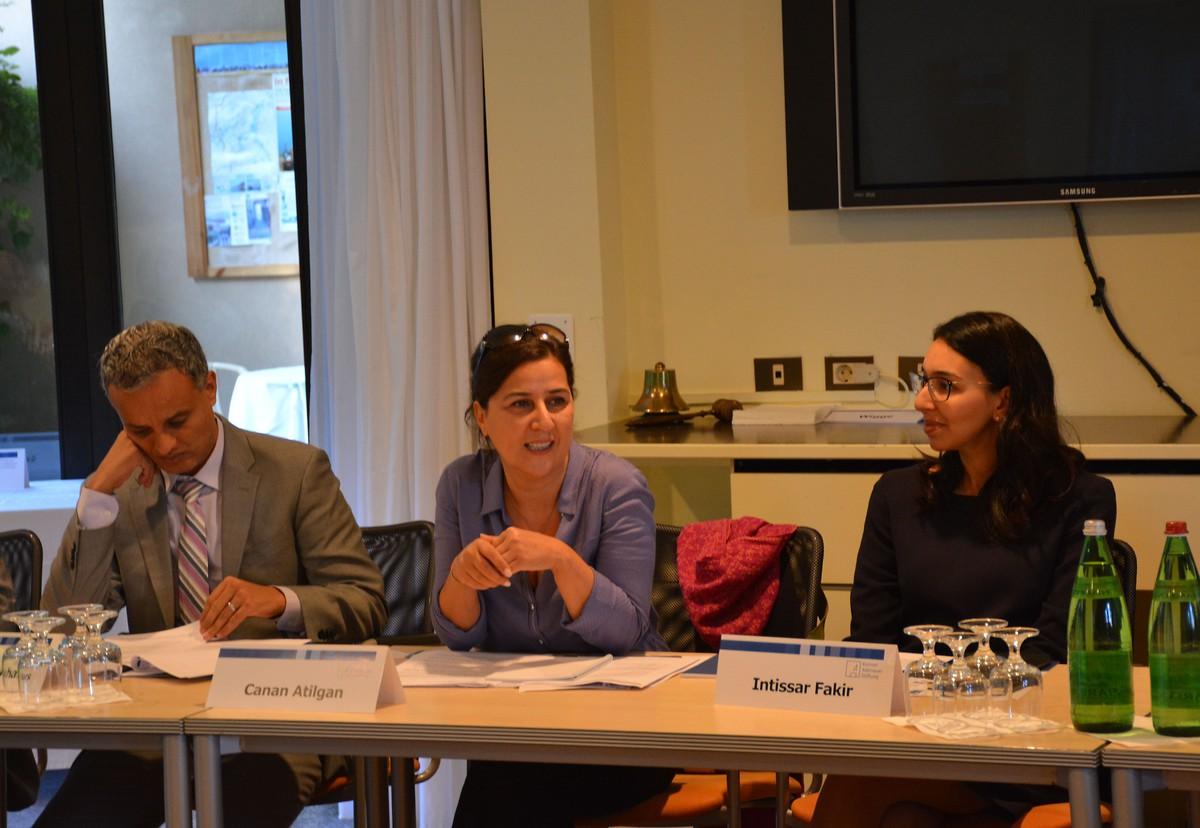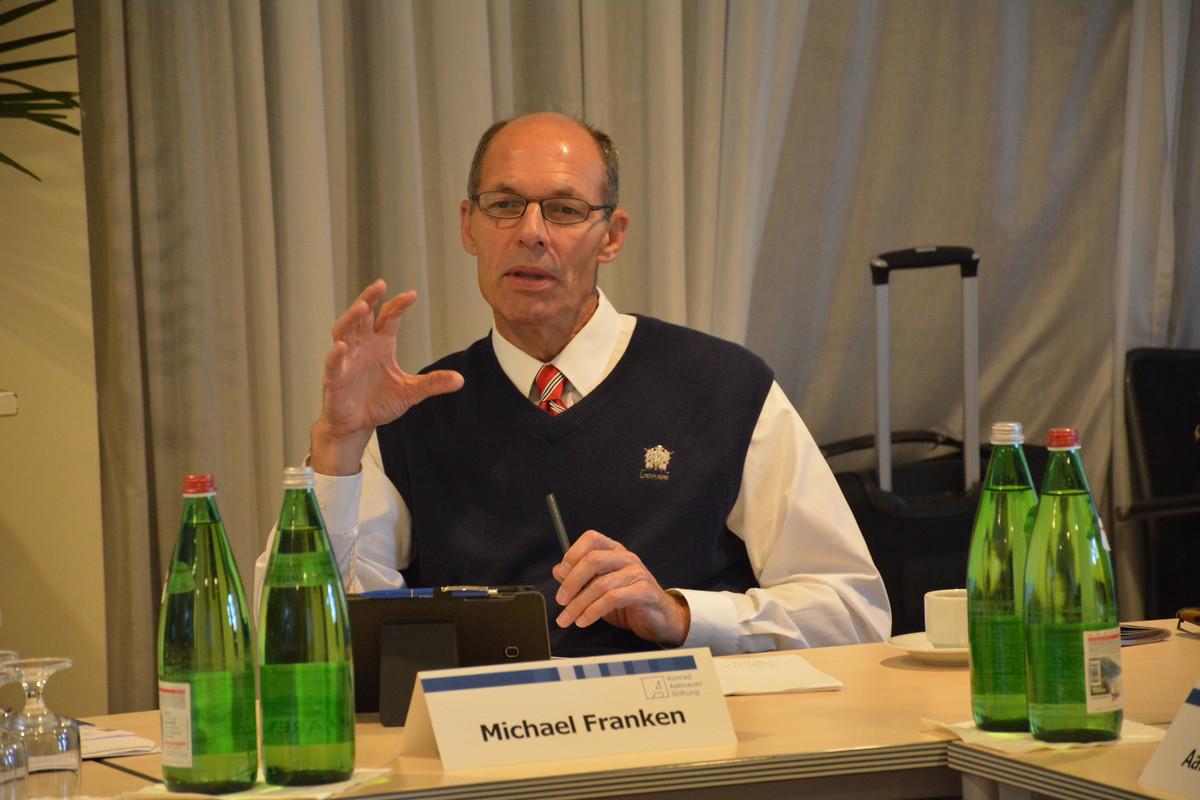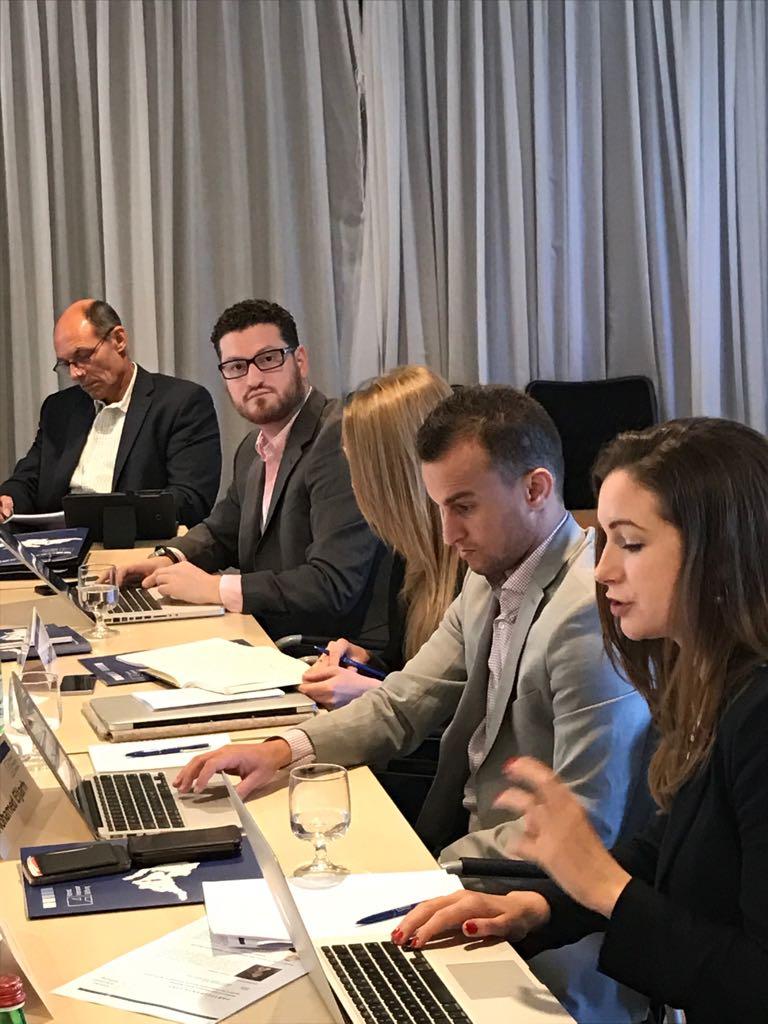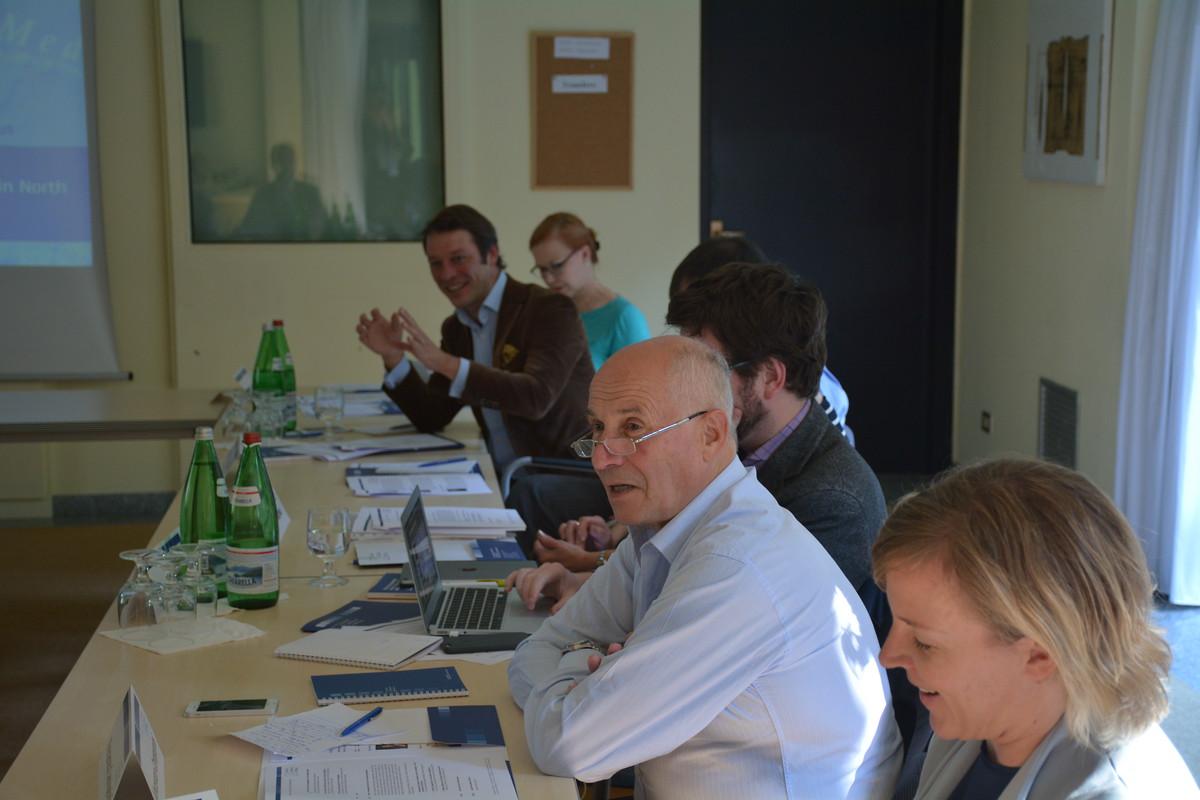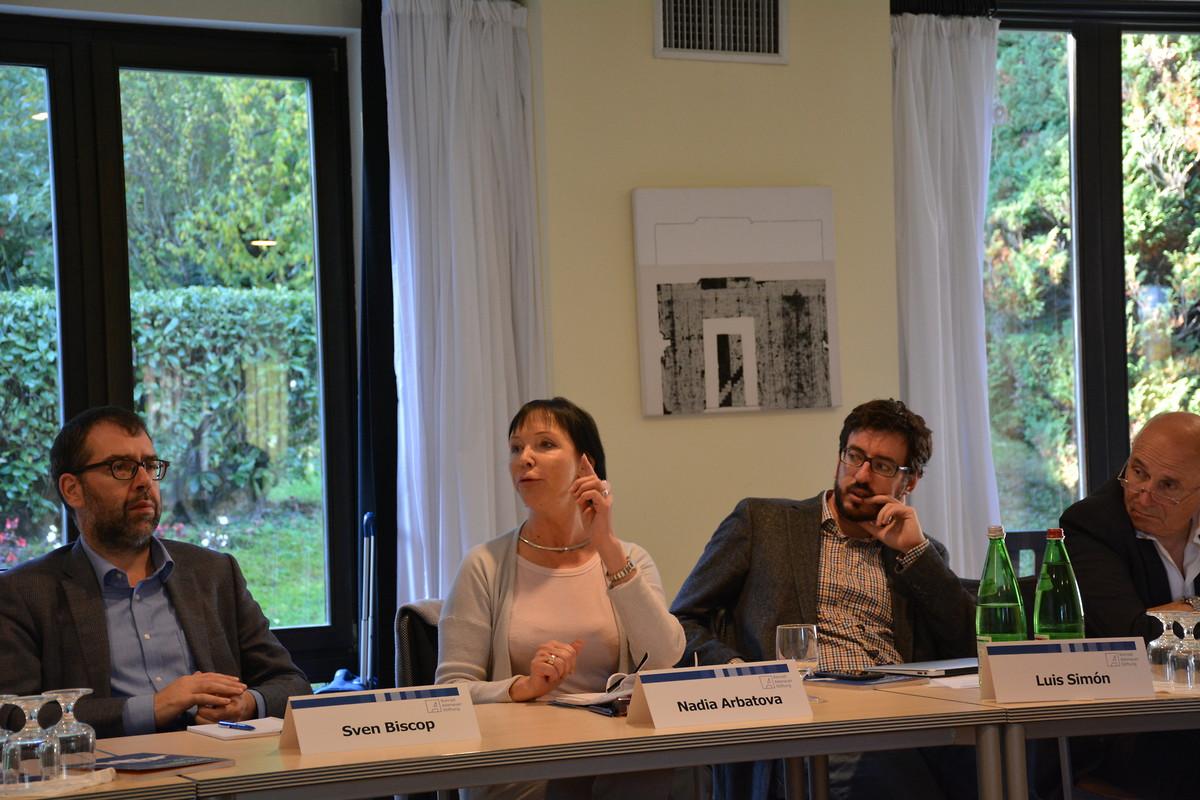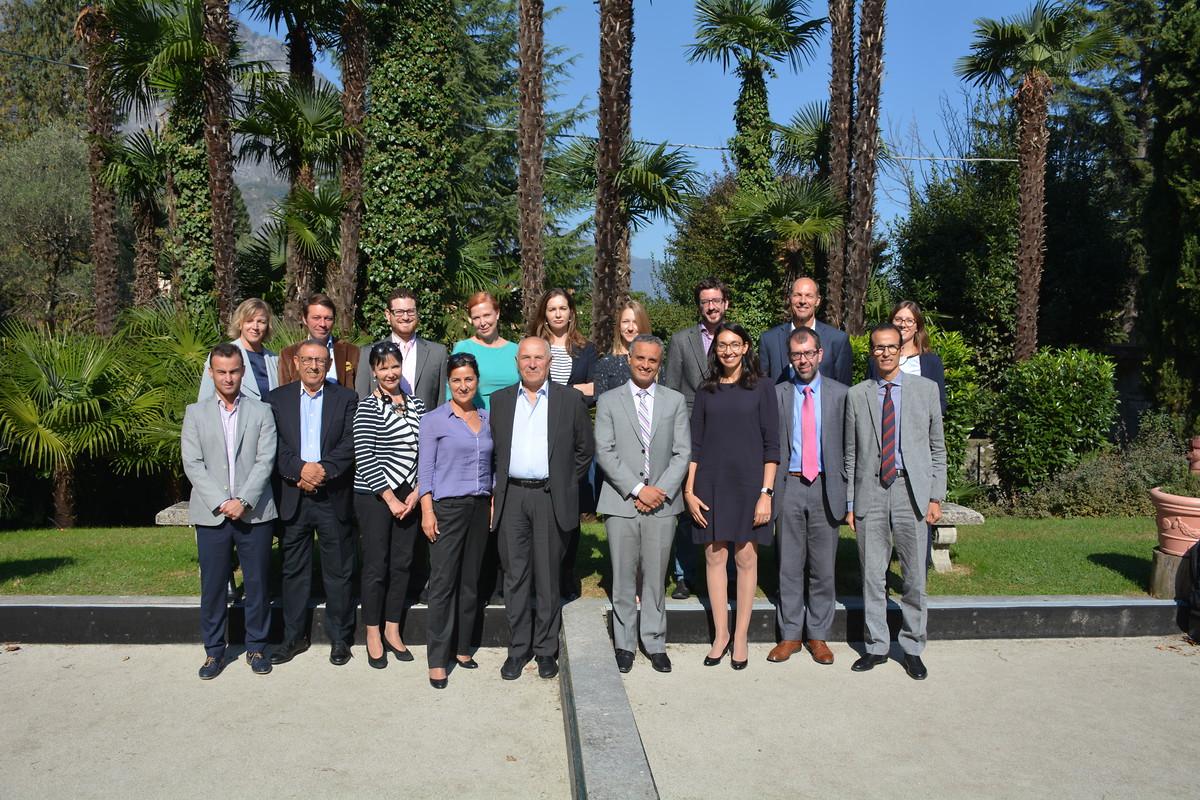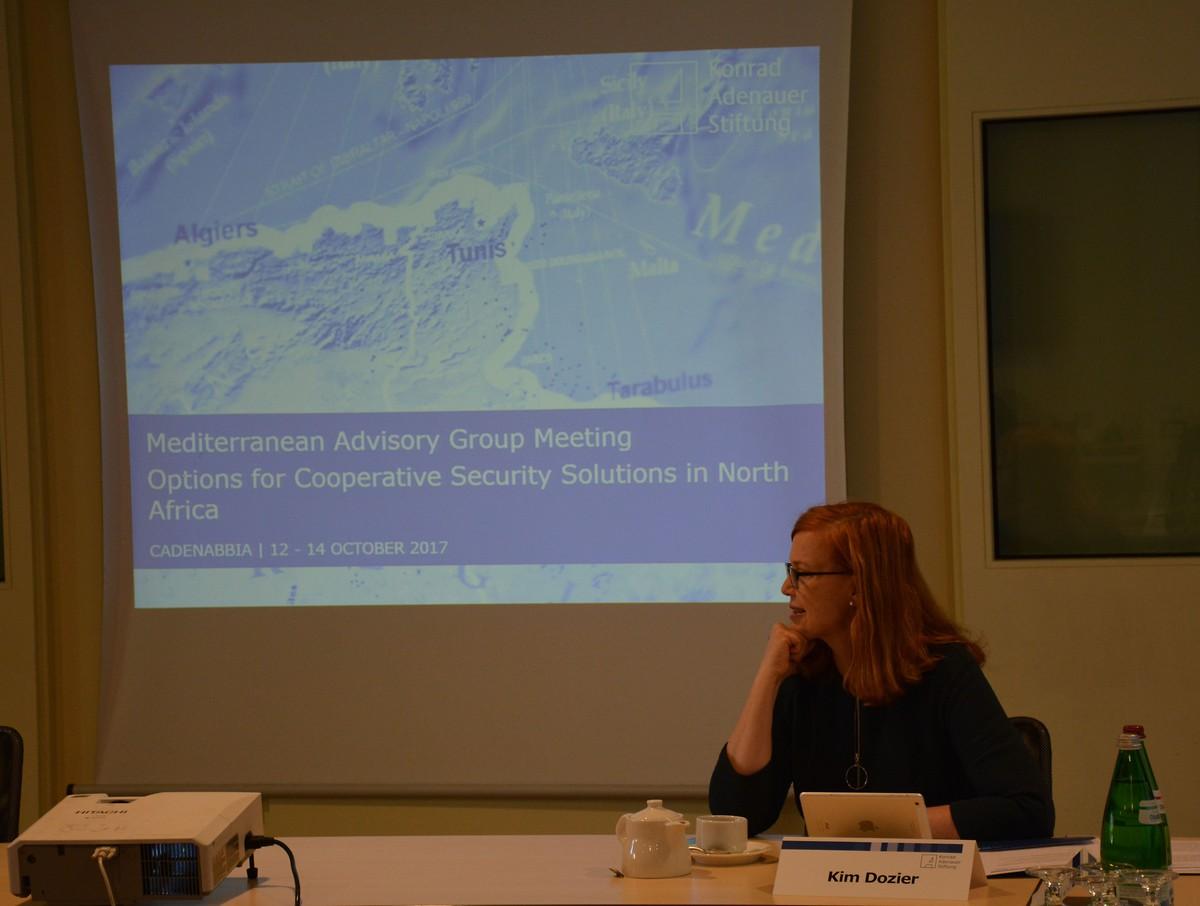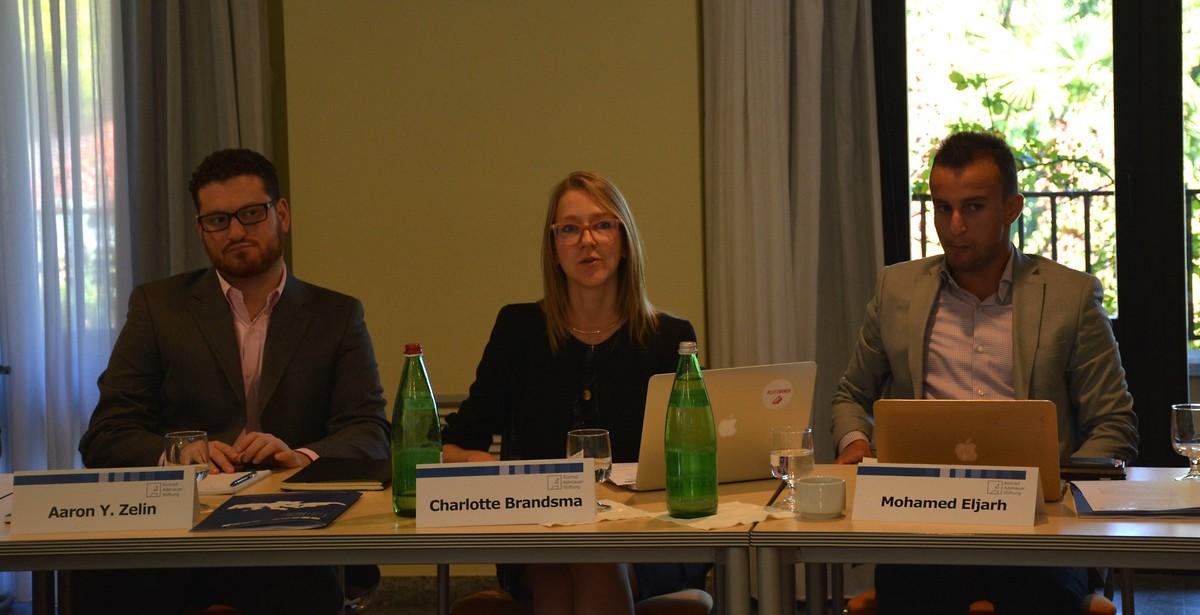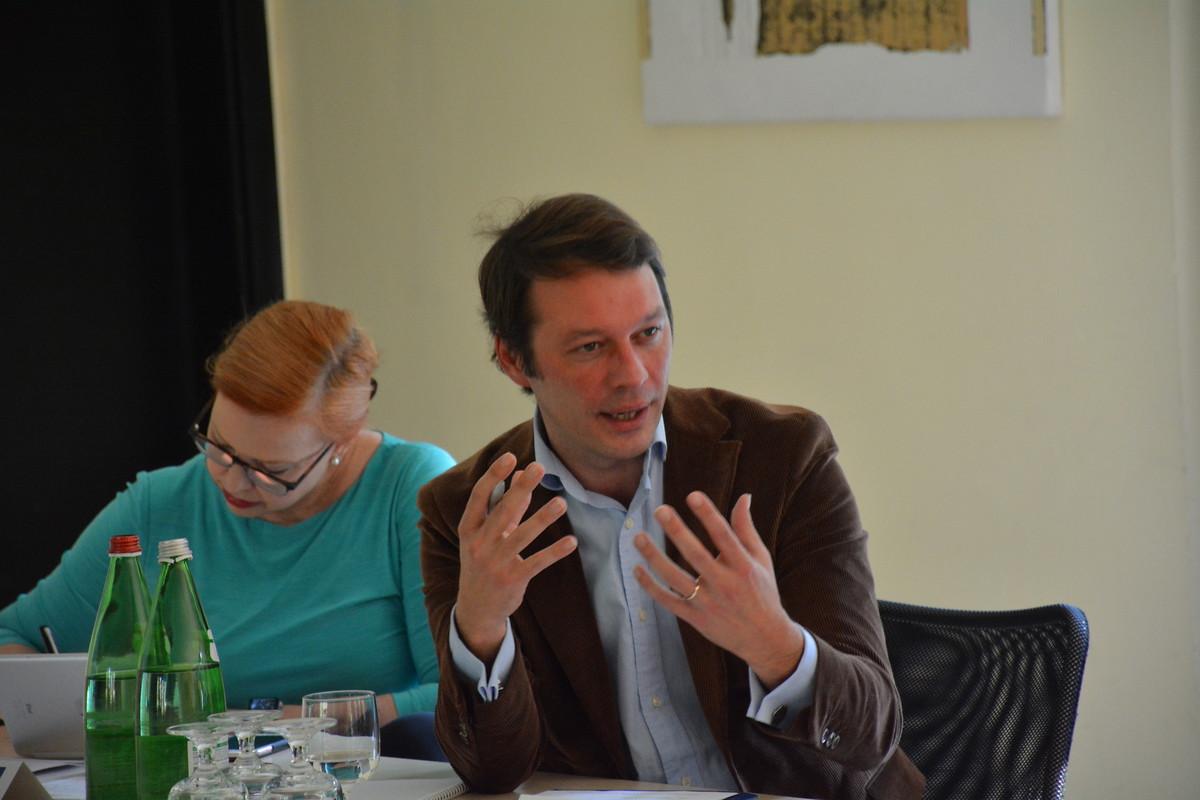Event reports
With security challenges in the Maghreb and Sahel becoming ever more pressing and collective security schemes being weakened through shifts in regional and global political relations, ad hoc cooperative arrangements have come to play an increasingly important role. These shifts from traditional schemes and organizations to new forms of cooperative security provision were discussed in the framework of the Mediterranean Advisory Group with additional experts from Europe and the US in a closed-door workshop from 12-14 October in Cadenabbia.
Based on an analysis of current security risks in North Africa, above all the spill-over of instability from Libya to neighboring countries through the spread of militant extremism as well as contraband and organized crime, the experts discussed the ability of traditional security providers, such as the African Union, NATO and the EU, to adequately tackle these challenges. In all three cases, a lack of either political will, financial capacities or clear strategic direction was cited as obstacle for stronger engagement in North Africa. Political disagreements between states were furthermore discussed as decisively hindering stronger, unified positions by these organizations and thus as limiting their role as reliable security providers in North Africa.
With this unwillingness or inability of traditional organizations to act as strong security providers, the rising importance of ad-hoc security alliances and new arrangements around specific issues was highlighted. Within North Africa and the Sahel, both Morocco and Algeria have been aiming to position themselves as reliable partners for security provision in order to strengthen their regional power positions. Political animosities and frozen conflicts such as the Western Sahara issue however remain an obstacle for the advancement of regional security provision. It was remarked that traditional institutionalized security responses through multilateral organizations have become less relevant in North Africa, particularly in their role as first responders. Nevertheless these organizations still bring in the necessary weight for long-term stabilization of the region. In order to play a continued important role, it is however necessary for these organizations to better understand bilateral and sub-regional mechanisms in the sphere of security provision.
The role of the US and Russia for security provision in North Africa was furthermore discussed. Russia’s engagement can be seen as taking advantage of the weaknesses of Western strategy – particularly the current US vacuum in the region – and as part of the Russian strategy to position itself as important power player vis-à-vis Western powers, making the Mediterranean increasingly a focus of its efforts. In the absence of an overarching regional MENA policy of the White House, North Africa remains nevertheless an important theatre for the US, with experts even predicting an eventual shift of the US focus from the Pacific to Africa due to multiple factors that require a stronger and sustained US presence, such as demographic development and the repercussions for economic development and migration movements in Africa. From an Arab perspective, the fight against violent extremism and jihadism was emphasized as key issue for security provision in the wider region that has to be advanced through bi- and multilateral security cooperation, but also economic, social and political reform.
The current tendency away from established multilateral organizations towards more ad hoc and issue-specific cooperative security arrangements was analyzed and discussed during the workshop and a continuance of this tendency predicted. Looking beyond security provision, experts stressed the importance of also moving beyond the topics of terrorism and migration in North Africa and to deepen efforts to foster economic development as basis for a lasting stabilization of the region.
About this series
The Konrad-Adenauer-Stiftung, its educational institutions, centres and foreign offices, offer several thousand events on various subjects each year. We provide up to date and exclusive reports on selected conferences, events and symposia at www.kas.de. In addition to a summary of the contents, you can also find additional material such as pictures, speeches, videos or audio clips.



